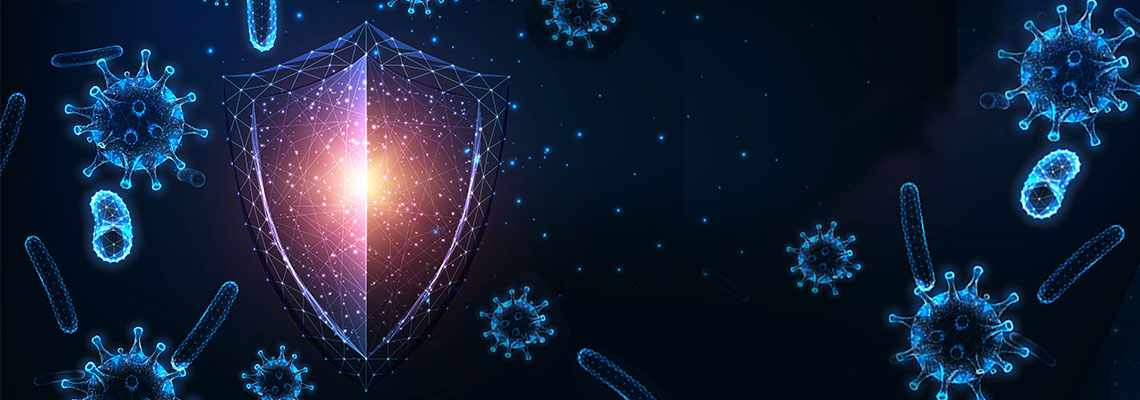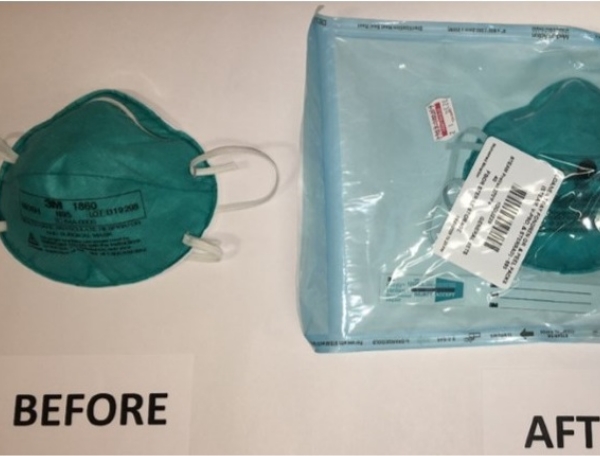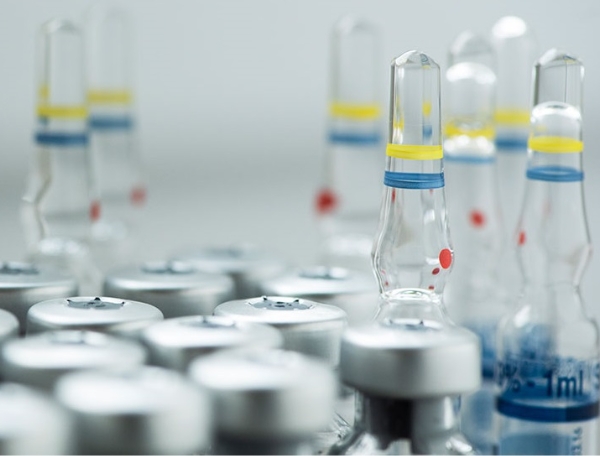


Clinical Research
Trials Aim to Calm Cytokine Storms
Intensivist focuses on fighting dysregulated immune response

Medications used to treat autoimmune diseases may help decrease cytokine storms in COVID-19 patients.
As COVID-19 continues, many of the most severe cases occur in patients who have a heightened immune response. These patients have an overly active immune system that creates an excess of cytokines to fight off the infection. The production of excess cytokines is called a “cytokine storm,” which can attack the patient’s own vital organs. The resulting complications are severe, and may include acute respiratory distress syndrome (ARDS)—a condition that makes breathing difficult for the sickest COVID-19 patients.

Deepa Bangalore Gotur, MD, began enrolling patients in two clinical trials on May 6, 2020.
Many people are already experiencing a cytokine storm by the time they arrive at the hospital. We quickly realized we needed to stop this process—as early as possible—to prevent patients from being intubated or going on life support.

Deepa Bangalore Gotur, MD
Associate Professor of Clinical Medicine
Department of Medicine
Houston Methodist
Gotur is now enrolling patients in a clinical trial of Tocilizumab, a drug designed as an active agent against interleukin 6, the protein associated with the inflammatory cascade linked to the body’s overactive immune response. Though it tends to be in short supply, the medication is available at Houston Methodist as an official study site.
The Tocilizumab trial will enable researchers to measure levels of cytokines before the medication is administered and again,after it’s administered, to assess whether the medication has blocked the activity of interleukin 6. The goal is to determine the right amount of dosing for COVID-19 patients, including a special focus on those with cancer.
A second clinical trial will soon be underway to study a cytokine pathway with a different target in the chain of cytokine responses as part of a cytokine storm. Gotur explains that the cytokine pathways are complex, offering multiple targets that may provide opportunities for blocking the cytokine storm.
The second trial will explore a different immune blocking medication known as I-Mab, which was developed by Biopharma. This medication will block GM-CSF. Designed for a severely ill patient population, the randomized, placebo controlled clinical trial will soon be initiated.
"At Houston Methodist our mortality is low because we have a set algorithm and approach for every stage of this disease process,” said Gotur. “With these clinical trials, we hope to see higher rates of recovery among patients with the most severe symptoms."
Gotur and her fellow researchers studied various medications used to decrease the cytokine storm for patients with numerous autoimmune diseases, including cancer. Looking at existing drugs used for these autoimmune diseases as a possible option for treating COVID-19, Gotur proposed several clinical trials that would offer treatment options for patients with ARDS brought on by COVID-19. On May 6, she was approved by Houston Methodist’s Institutional Review Board to move forward with two clinical trials.
LaVonne Carlson, May 2020








